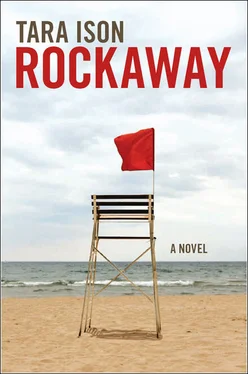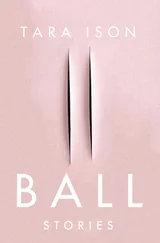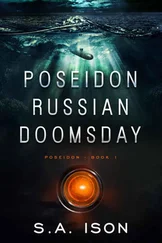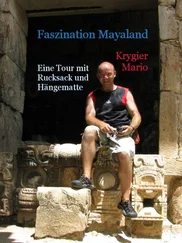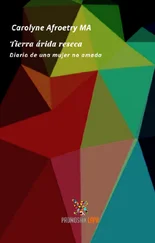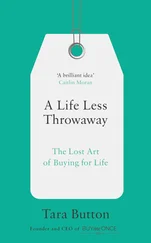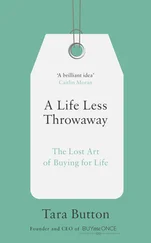Lamb’s blood, the small sacrifice. She stands, watching, opens her mouth to cry, to call her mother or father to help, Mommy, Daddy, come see, come look, I need you , but then doesn’t. Mommy, Daddy, help me, it hurts . She just stands there, quiet, still, watches the pretty red blossom and float until her mother comes in to pour herself the last of the wine and sees, says What did you do to yourself, Sarah? Go, go get yourself a Band-Aid, go on . A ridge of scar tissue, now, crudely healed. They should have taken me for stitches, she thinks. Why didn’t they take me for stitches?
“But I was just a kid, you know. .” she finishes.
“How old were you?”
“Hmm?” She looks up at him.
“When you did that? The seder?”
“Oh. . nine, I guess? Maybe ten?”
“Wow.” He looks surprised.
“So, now I’ve done it every year since. The whole routine. I even do the Four Questions. And I wrap up a piece of matzoh and hide it for myself. Then I make my dad give me a dollar.”
“You’re kidding.” He shakes his head. “Wow,” he says again.
“Hey, I’m still the youngest child! That dollar is mine!” She laughs. “I know. It’s twisted. But that’s the tradition now. And once that kind of thing takes, it’s too late, right? You’re trapped. You’re stuck.”
“No, see, that’s not true. Traditions can change. They’re supposed to. They’re living things. Always evolving.”
“Oh, things’ve evolved,” she says, mock-assuring. “I’m a much better cook now. Chicken soup from scratch.”
“No, look, this year, you’re here. Right?”
“Right.”
“So Pesach is all new again for you, this way. You can appreciate it all over again, like it’s the first time. You gotta do that with everything. You can’t just move through life, we gotta recreate life at the same time. Be conscious of doing that, every single moment.”
“Oh my God, that is so exhausting.” She smiles at him, to soften the comment, then: “I’m kidding. I get it. You’re exactly right, this year was definitely different.” She waves vaguely at the house, at the family in the dining room.
“And it’s good, right?”
“Sure. It’s been a blast.”
“No, I mean how’s it feel ? How’s it different on the inside ?” He touches his chest. “Like deeper, how?”
She feels impatient. Exhausted, yes, ready for this whole evening to be over with and done. No more questions, please. “Like you said, change is good. This has been a good, conscious, evolving evening. Really. Thank you.” She picks up The Torah Anthology again. “It’s like you’re always lifting up rocks to see what’s crawling around,” she can’t resist adding.
He looks at her, bewildered. “We’re just talking, here.”
She flips pages of purification rituals. “You’re like those people on the beach that’re always prying open oysters because maybe maybe there’s that pearl inside.”
“I am?”
“Or a clam or mussel, like there’s going to be some little animal alive in there, but there never is. It’s just a shell.”
“Is that what you’re scared of?”
“I’m not scared. Where do you get that?” She feels fully exasperated now. What’s with him, all this interrogation? No, she realizes, she’s not exasperated. She feels embarrassed. Too seen-into, too revealed. Your own fault, Sarah, offering up so much personal stuff. No reason to tell him all of that, you don’t even know this guy. “You know, I’m just tired. Really. What time is it, anyway?” she asks, standing. Marty doesn’t answer, just nods, chewing his lip, and she heads back toward the dining room.
“Sarah,” says Itzak. “Come, join us. Have some of this.” He smiles at her, carding smooth the fibers of his beard with one hand and offering her a breast-shaped snifter of brandy with the other. “And come every Friday for shabbes. You’re always welcome.”
Walking the seven blocks by five blocks back to the house in the nighttime dark, passing again all those families heading home now from synagogue, the sleepy children carried in their parents’ arms, Sarah and Marty talk politely about movies and fog. She murmurs enthusiastic thanks fifteen feet from the front door, and darts into the house without kissing him on the cheek.

THE NEXT MORNING while munching toast and browsing through A Collector’s Guide to Seashells of the World , Sarah doodles an idea of a shell on the sports section of Newsday , which she is using as a placemat, just below her coffee mug’s damp brown ring. It is not a very identifiable shell, nothing pictured in the book, perhaps some kind of generic gastropod. She looks at it a moment, then sketches in the gastropod’s little foot, peering out. She is using the black ballpoint pen Bernadette keeps for phone messages, and it blobs a bit, messing things up. She dumps her crumbs on top of the shell and sports section and scoops it all into the box Avery uses for recyclable paper.
She is low on food. Last night’s fog is gone, and the sun is a white blister; she puts on her sunglasses, pedals into town on the little-girl bike, and buys: milk, broccoli, tuna, pasta. Olive oil. A bag of oranges, and, why not, a box of unpresumptuous and probably stale matzoh. She has the casual thought of purchasing kosher wine or brandy, maybe for a future shabbes gift, but there is none in the grocery store. She buys a regular kind of table wine, a half-gallon of red, tucks it in her backpack.
On her way home, produce and matzoh shaking in her basket, the heavy bottle between her shoulder blades throwing her slightly off-balance, the bicycle turns off the boulevard and down a street that leads to the beach, several blocks from Nana’s. Why not? she thinks again. There’s no hurry to get home. It’s a pretty day to pedal around. Check out the neighborhood a little more. Be conscious of this beautiful day, appreciate it, fine. The weather is warming; down beyond the end of the street, out on the beach she sees what looks like a bathing-suited family spreading out towels near the still-empty lifeguard chair, or maybe it’s a couple of sibling teenagers babysitting a toddler. Maybe I’ll go swimming later, she thinks, maybe it’ll be warm enough to be okay. Should’ve bought some ginger ale. In the gaps between houses she spots a few back porch decks, a barbecue, an inflated plastic wading pool, laundry flapping on lines. She rides up and down the length of the street, the bicycle jolting over cracks, looking for a hanging black sweatsuit or jeans. She starts to feel slightly ridiculous, like an ice cream truck circling in desperate search of customers.
Behind a small brick and clapboard house facing the beach she spots a clothesline with dark, drooping squares and rectangles, and the smaller smudge of a hat-sized black dot. She fumbles to take off her sunglasses and the bicycle wobbles; she overcompensates by overjerking the handles, and the front tire flips sideways as if kicked. She falls, skidding, to the asphalt, landing first on one knee, then on her back, the bicycle collapsed and plinging on top of her. Oranges roll across the street.
When she can gasp out a breath again, it comes as crying. Her pants are torn; her ripped knee stings and bleeds grit, her shoulder feels shoved through her chest, and she hears the thick clink of broken glass in her backpack. A garnet trickle slowly pools beneath her. She cries in pain and humiliation and hatred. No one comes rushing from the house with the black knit cap hanging on the line. She stills her crying, swallows it down. She slowly gets up on her feet, righting the bicycle. Her sunglasses are tangled in the rear tire’s spokes and she has to free them before she limps away, pushing the warped bike before her with raw-scraped hands.
Читать дальше
